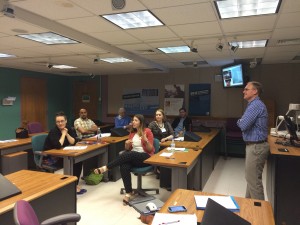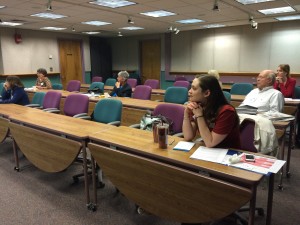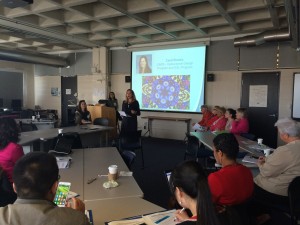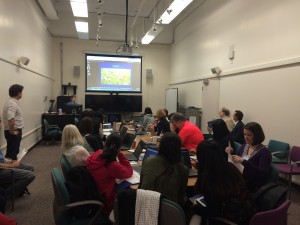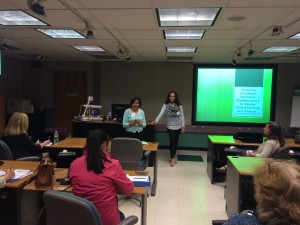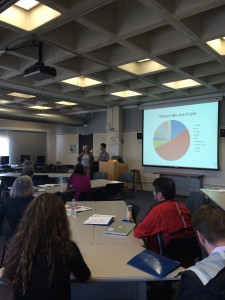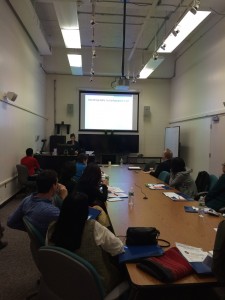Room: Healey Library, LL, P2
From Board Work to Blog: “After Class” Student Reading
The presenter shows how a co-teaching and co-learning model developed organically when a group of students began meeting after and outside of class. A multi-person, multi-faceted, and multi-perspectival “reading” of a novel was created and “published” and “copyrighted.” The presenter shows how letting students lead the faculty member, rather than the other way around, is a crucial move for professors to become, in turn, better teacher-scholars.
Presenter: Avak Hasratian (English)
The “Problem Space:” A Co-Learning Tool for Student Research and Deep Learning
This session examines the design and use of the ‘problem space’ (applicable in multiple disciplines), a twist on the case study method, as a tool to promote critical thinking and deep, subject-matter understanding where students are given an open-ended, real-world challenge to pursue and gather evidence in order to answer THEIR OWN questions. Faculty and students engage in a collaborative teaching-learning experience.
Presenter: Linda Grisham (eLearning, Massachusetts Bay Community College)
Watch Video:
https://vpc1.umb.edu:8443/ess/echo/presentation/4ca7fe7a-753d-43c5-88f8-18a67aa8185a


